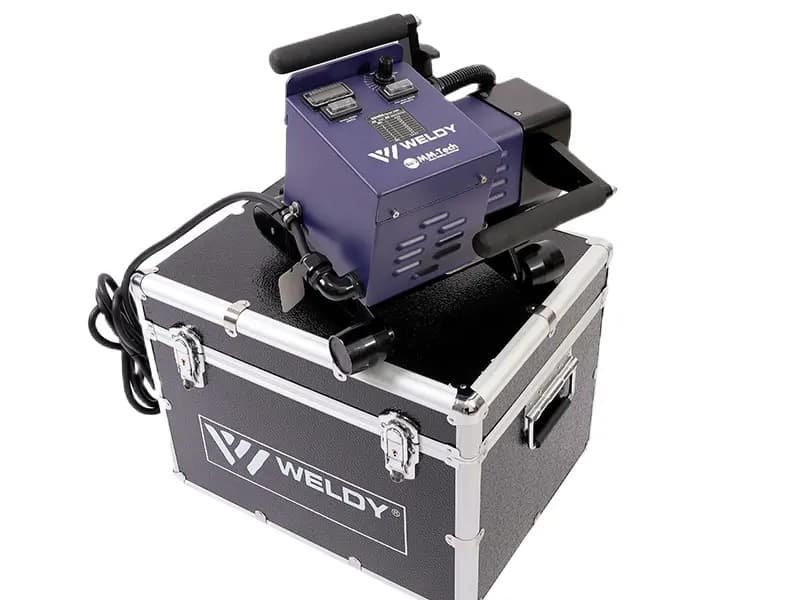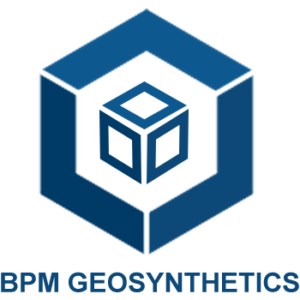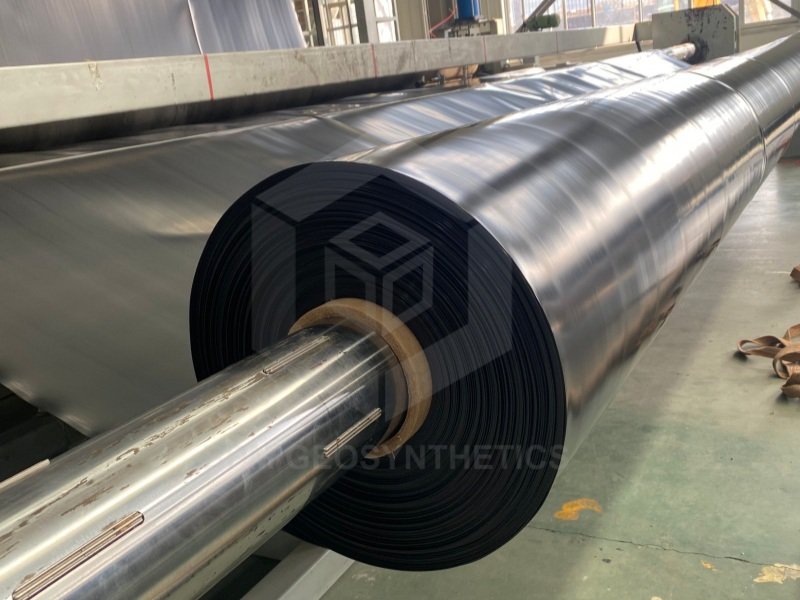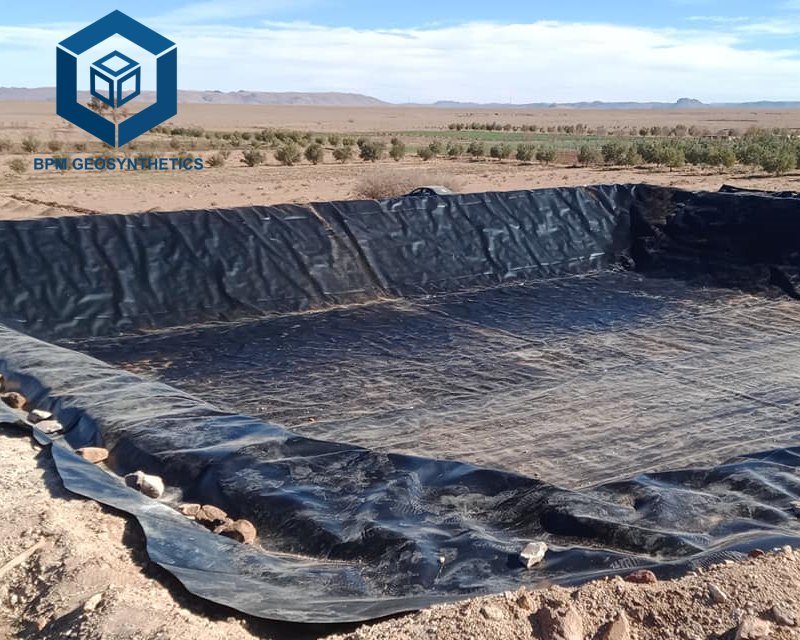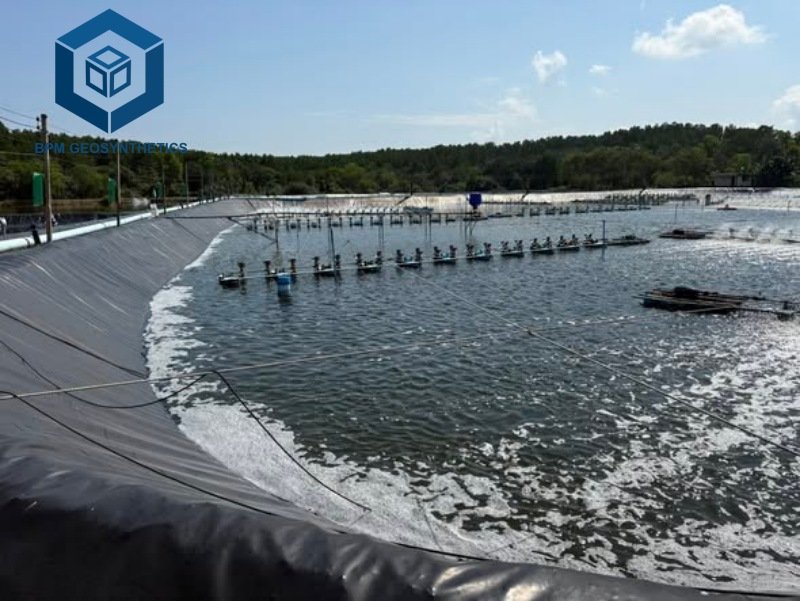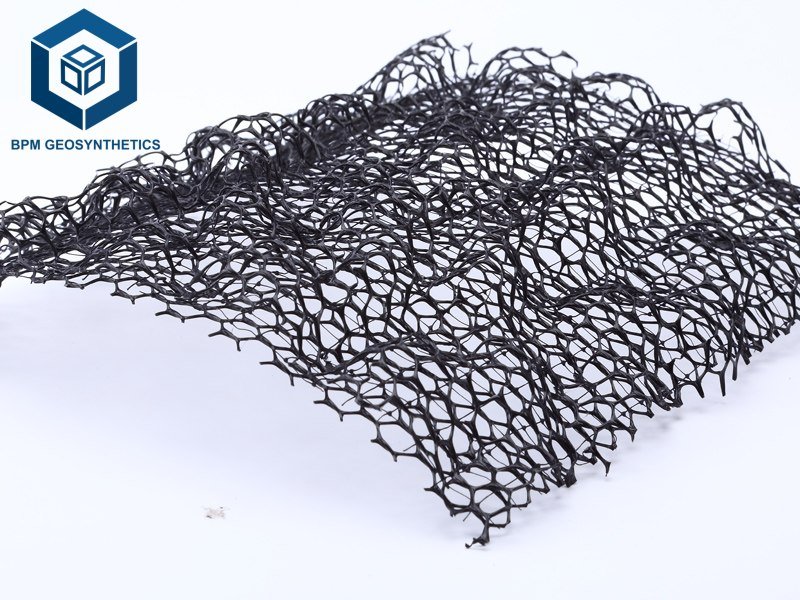Geomembrane welding machines are essential tools in construction and environmental engineering, widely used in landfills, water conservancy projects, artificial lakes, and tunnel waterproofing. The price of these machines varies significantly depending on multiple factors, ranging from technical specifications to market dynamics. This article explores the **top five factors influencing geomembrane welding machine prices**, providing insights for buyers to make informed purchasing decisions.
1.Technical Specifications and Performance
1.1 Geomembrane Welding Machine Welding Method
Geomembrane welding machines primarily come in three types, each with different price ranges:
Hot Wedge Welding Machines:
Suitable for HDPE, LDPE, and other high-strength materials. These are the most expensive, due to their precision and durability.
Hot Air Welding Machines:
Used for PVC, TPO, and other flexible membranes. These are more affordable but may require skilled operation.
Extrusion Welding Machines:
Ideal for repairs and complex seams. Prices range from **$4,500–$20,000**, depending on power and features.
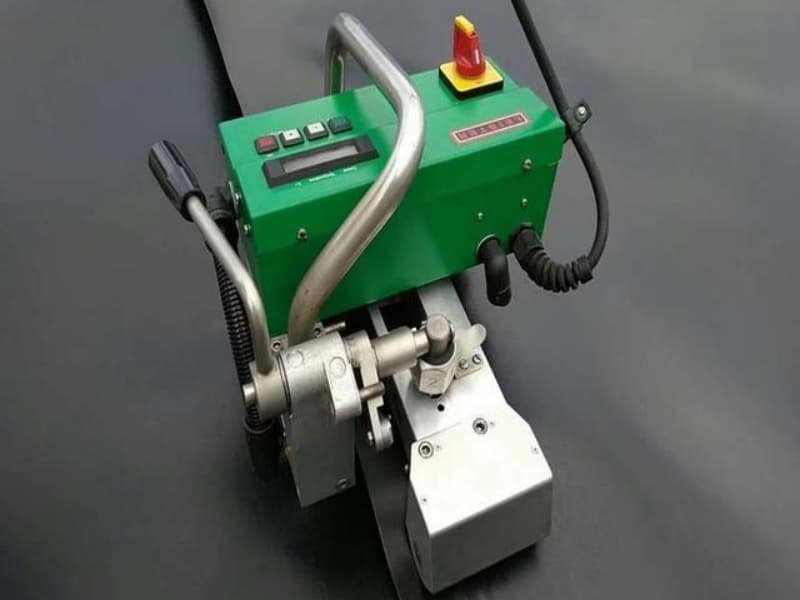
1.2 Automation Level
Manual Machines:
Cheaper but slower and labor-intensive.
Semi-Automatic & Fully Automatic Machines:
Equipped with temperature control, speed adjustment, and seam tracking, but improve efficiency and consistency.
Power and Welding Speed
Higher-wattage machines (e.g., 3kW+) can weld thicker geomembranes (2mm+), increasing costs by **30–50%** compared to standard models. Faster welding speeds (0.5–3 m/min) also raise the price.
2.Geomembrane Welding Machine Brand and Manufacturer Reputation
2.1 International vs. Local Brands
International Brands(e.g., Leister, SOLDAMAT): Known for superior engineering and reliability, but prices are high .
Local/Chinese Brands (e.g., BPM Geosynthetics geomembrane welding machine): Offer competitive pricing but may lack advanced features.
2.2 After-Sales Support
Reputable brands provide warranties, training, and spare parts, which can justify higher costs. Cheaper machines may have limited support, leading to long-term maintenance issues.
BPM Geosynthetics provides comprehensive welding machine warranties, operator training, and complete accessory support.
3. Market Demand and Raw Material Costs
3.1 Fluctuations in Metal and Component Prices
Rising copper and steel prices directly impact motor and heating element costs.
For example, a 10–15% price increase in 2023 affected welding machine manufacturing costs.
Machines using imported components (e.g., German thermocouples) cost **20–40%** more than those with local parts.
3.2 Industry Demand Trends
– Stricter environmental regulations (e.g., landfill lining requirements) drive demand, sometimes leading to price hikes.
– Increased competition among manufacturers (especially in China) can lower prices.
4. Geomembrane Welding Machine Additional Features and Customization
4.1 Smart Functions
Auto temperature adjustment: Adds 5–10% to the price.
Data logging & IoT connectivity**: Increases costs by 20% or more but enhances project monitoring.
4.2 Specialized Models
Explosion-proof machines: Required in oil & gas industries, priced 30–50% higher.
High-altitude/low-temperature variants**: Reinforced components raise costs by 15–25%.
5. Shipping, Taxes, and Import Duties
5.1 Tariffs on Imported Machines
Buyers outside manufacturing countries may pay 5–10% tariffs + 13% VAT, increasing total costs by 20–30%.
5.2 Logistics Expenses
Heavy-duty automatic machines incur high freight costs, especially for international shipments .
Conclusion
The price of a geomembrane welding machine is influenced by:
- Technical specs (welding method, automation, power).
- Brand reputation (international vs. local, after-sales service).
- Market & material costs (steel/copper prices, demand trends).
- Advanced features (smart controls, specialized models).
- **Logistics & taxes** (shipping, import duties).
For large-scale projects, investing in a high-end automated machine ensures long-term efficiency, while smaller operations may prefer cost-effective local brands. Buyers should balance performance, durability, and budget to select the best machine for their needs.
By understanding these factors, businesses can optimize procurement strategies, avoiding overpayment for unnecessary features or underestimating long-term operational costs.
BPM geosynthetics welding machines have been exported to over 80 countries worldwide. Many geomembrane customers purchase our welding machines, welding rods, and special-shaped locks as complementary products. The product quality has been field-tested and approved by professional welders over many years of practical application. We provide customized recommendations for welding machine models and operational guidance tailored to each client’s specific project requirements.
